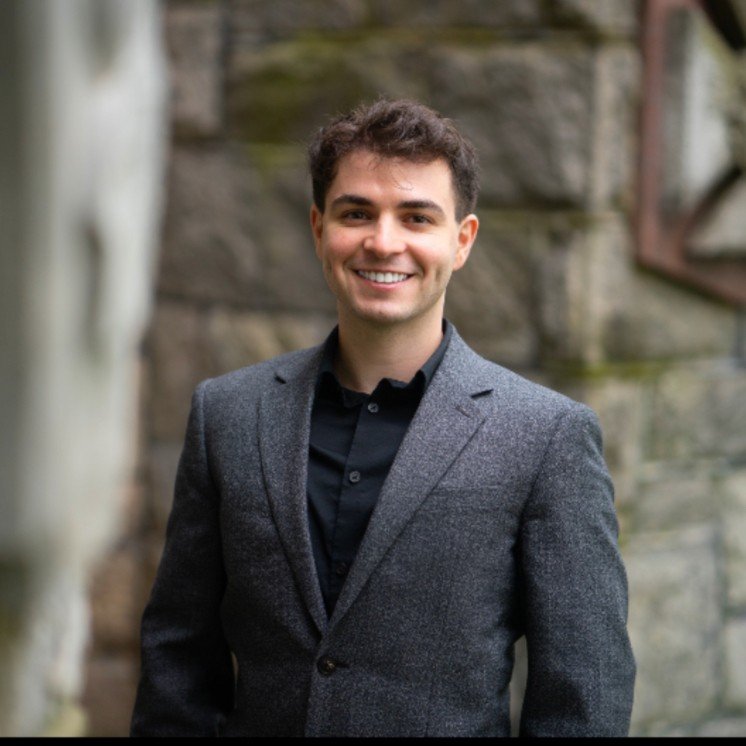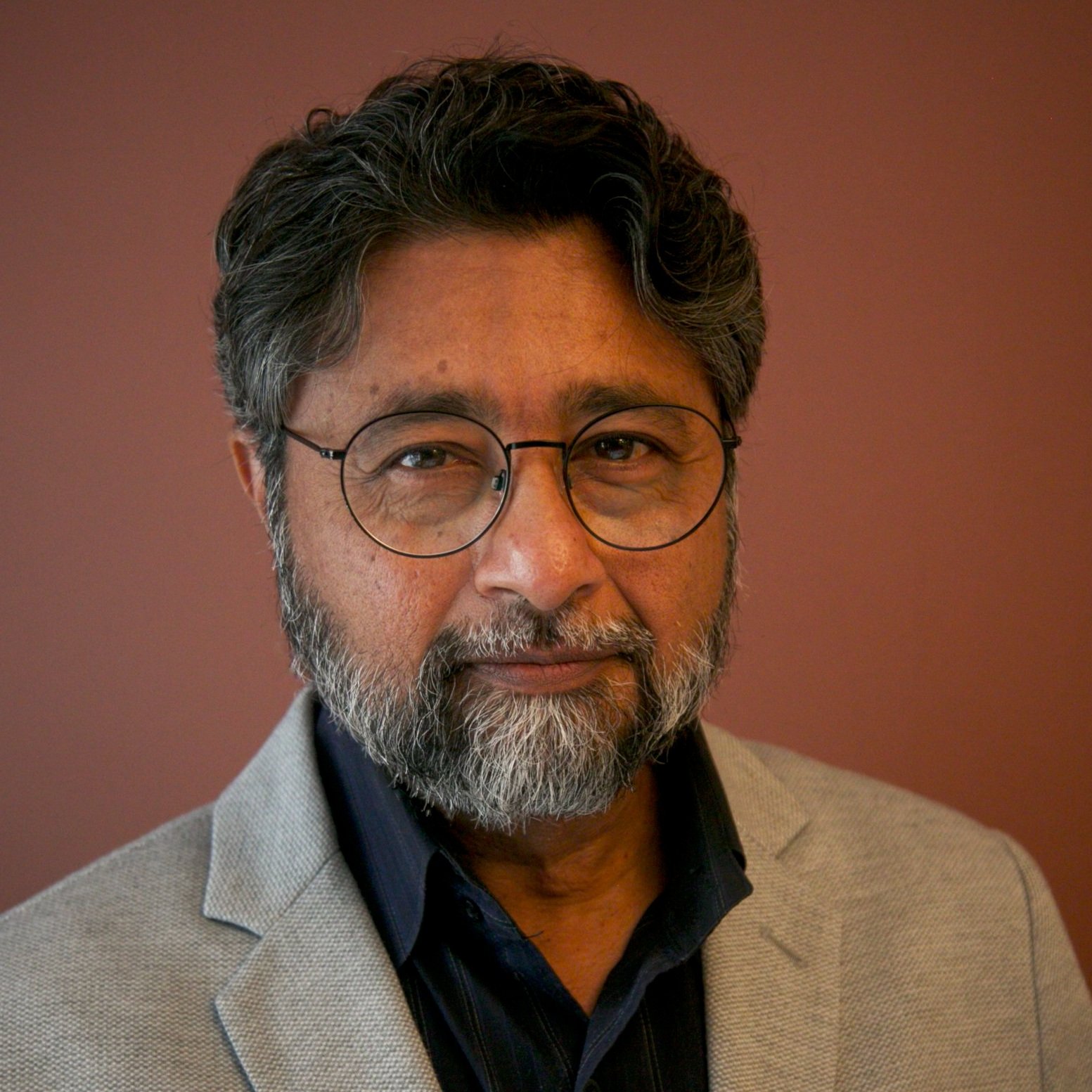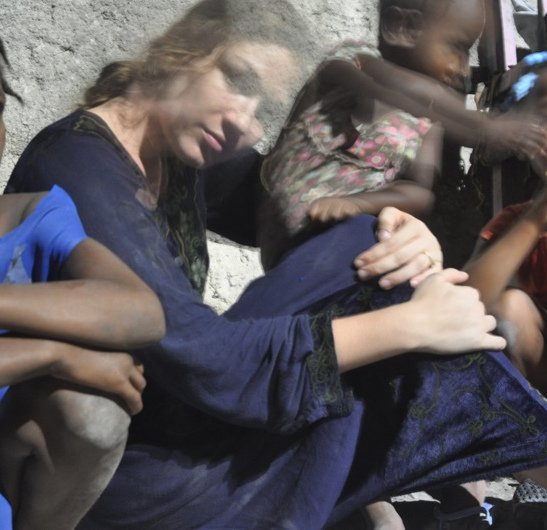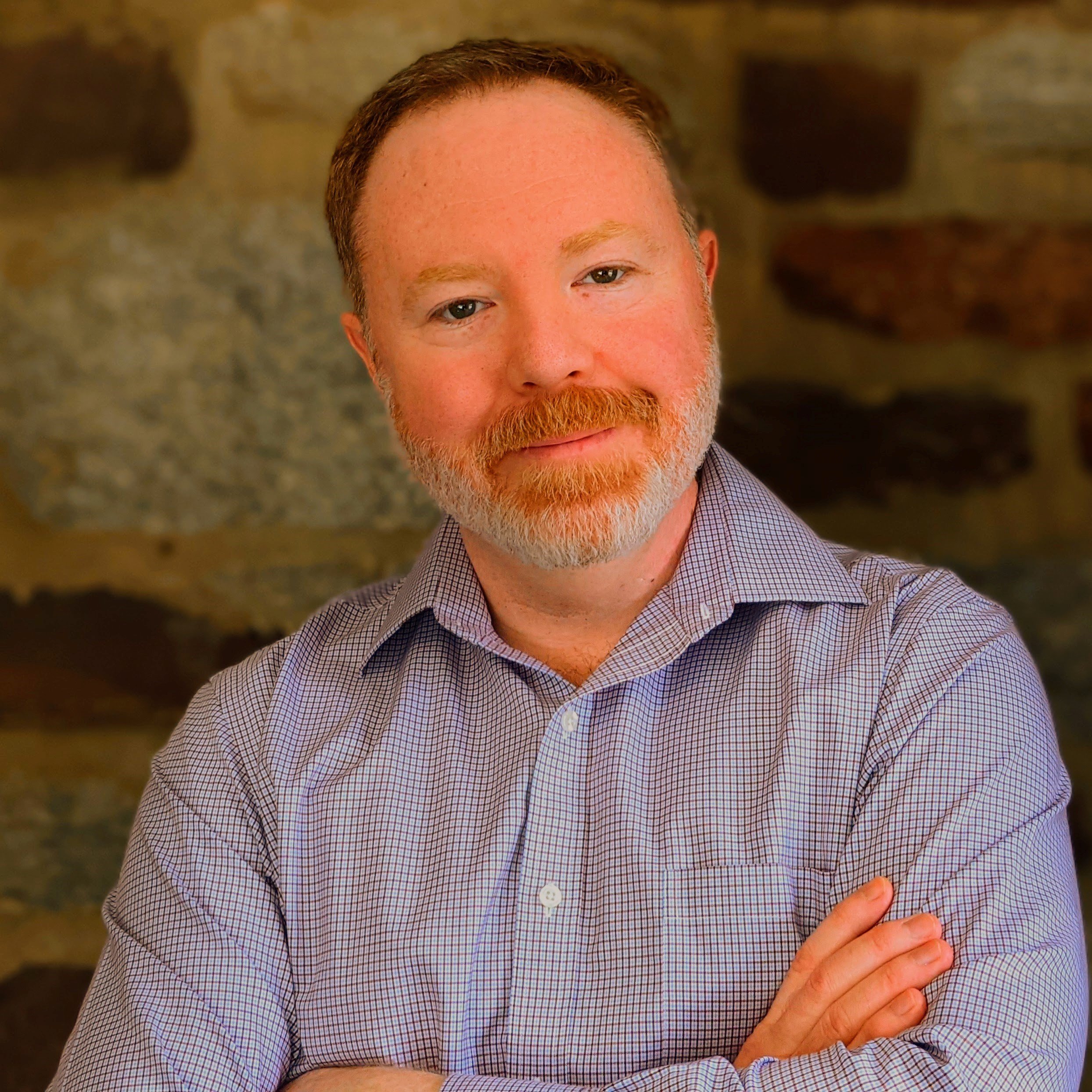Organizing Team
-
Malcolm is a Senior Undergraduate student at Drexel University, majoring in psychology with a minor in neuroscience. They are passionate about psychedelic research and psychedelic-assisted therapy, and they are interested in furthering their education in the field. Malcolm is also a part of Drexel's chapter of Students for Sensible Drug Policy, as well as a Behavioral Health Technician outside of Drexel. In their free time, Malcolm enjoys spending time outside, listening to music, and spending time with friends.
-
I am fascinated by neurogenesis and neurodegeneration, and believe the phenomena to be two sides of the same coin. Having been mentored by Jason Wallach, PhD—a pharmacologist who is developing novel psychedelics—I studied internalization of the serotonin 5-HT2A receptor during my Master’s program. Currently, I work at the University of Pennsylvania, Perelman School of Medicine, with Robert Mach, PhD—my project involves aiding in the development of PET tracers for Alzheimer’s Disease, Parkinson’s Disease, and related proteinopathies. I hope to pursue a PhD in Neuroscience in the near future.
-
Taylor Elizabeth Dysart is a doctoral candidate in the Department of History and Sociology of Science at the University of Pennsylvania, where is also completing a graduate certificate in Latin American and Latinx Studies. Her dissertation research takes the case of ayahuasca to examine how scientists forged tense and tender relationships with Amazonian healers, communities, and worlds to bring one of nature’s most ubiquitous yet unruly phenomena—psychedelic plants—into the realm of modern science. She traces the history throughout the late-nineteenth to the late-twentieth century, focusing primarily on the Amazonian regions of Brazil, Colombia, and Peru. Prior to coming to Penn, she completed her MA in the History of Medicine at McGill University and BA in History and Psychology at McMaster University.
-
Philip is a Ph.D. student at the Philadelphia College of Pharmacy at Saint Joseph University. He graduated from the University of the Sciences in 2018 with a BS in Pharmacology and Toxicology. He worked at Eurofins Lancaster Laboratories Inc. for three years in quality control of biological raw materials for products used in Car-T therapy and the Covid-19 vaccine before returning to his alma mater to pursue his doctorate. He works under Dr. Jason Wallach and leads many projects, including radioligand binding at the 5HT2a receptor, functional biological assays, analytical chemistry of cannabinoids, physical chemistry properties of tryptamines, and virtual reality ligand & receptor modeling.
-
I am a medical student interested in psychiatry! I completed his Bachelor's in Neuroscience at Brigham Young University. My interests include interventional psychiatry, anxiety. and psychedelic medicine.
-
Kate has been a proud Philadelphia resident for the past six years, bringing with her over a decade of experience in integrated and experiential marketing as the Senior Director of Integrated Marketing at American Dairy Association North East. Her career has been dedicated to working on behalf of dairy farmers, connecting people to the origins of their food, and fostering a deeper appreciation for agriculture communities. Kate's personal journey with death awareness and her relentless compassion for the interconnectedness of grief and the human experience have drawn her to the psychedelic space. She is committed to creating more safe spaces for conversations around these essential topics that feel inclusive for all people from all walks of life. Kate believes that the curiosity and care within psychedelic containers can be applied in everyday life to hold space in every soulful exchange. She holds a firm belief that looking up and engaging with everyone, especially strangers, through questions that encourage vulnerability can change lives and make our own lives more meaningful. Kate's favorite pastimes include journaling, live music, walking adoptable dogs and staying connected with the souls she's met in her travels, cherishing the lifelong bonds forged through shared experiences.
-
I graduated this May from the Pharmaceutical Sciences: Psychoactive Pharmaceutical Investigation masters program at the University of Wisconsin-Madison. She has spent the past year, doing graduate research for the Banks lab at UW-Madison on the anti-inflammatory, neuroplastic, and anxiolytic effects of psychedelic compounds in pre-clinical models. Bianca is an adjunct instructor at Thomas Jefferson University and Hudson County Community College teaching research and cannabis business classes in addition to being a cannabis cultivation instructor for NJ Cannabis Certified. She is also the CEO of a consulting company, Reaffirm LLC, facilitating cannabis start-up companies. She has a podcast "Word Medicine", currently available on Spotify. Bianca is also a writer for Psychedelic Pulse a small online psychedelic news publication, a co-lead for Psychedelic Practice & Policy an advocacy organization.
-
Kelly Kennedy helps to coordinate the Philadelic Conference. Outside of her work with Philadelic, Kelly works as the Senior Research Coordinator in the Galápagos Education and Research Alliance, housed in the Penn Philosophy department. Her background is in Psychology and Philosophy of Science, and she is particularly interested in capturing local knowledge around the ways people relate to their natural environment. In her spare time, Kelly contributes to the development of novel biotechnologies for psychedelic psychotherapy as a Psychometrics and Business Consultant for Sama Therapeutics.
-
Penn/Wharton alum, Chicago Booth alum, Harvard, Mindstate Design Labs, Mystic Health, Psychedelics Today, The Conscious Fund (formerly), Management Leadership for Tomorrow, Sponsors for Educational Opportunity (SEO)
-
I am a Masters of Bioethics student at the University of Pennsylvania where I focus on questions related to neuroethics, enhancement, and psychedelic-assisted therapy. Regarding psychedelic-assisted therapy, I am most interested in the provider-client dynamic, the phenomenological experience of ego dissolution, and the impact of religious belief on psychedelic experiences.
Faculty Advisory Board
-
Anjan Chatterjee is Professor of Neurology, Psychology, and Architecture at the University of Pennsylvania and the founding director of the Penn Center for Neuroaesthetics. He received his BA in Philosophy from Haverford College, MD from the University of Pennsylvania and completed his neurology residency at the University of Chicago.
The past Chair of Neurology at Pennsylvania Hospital, Dr. Chatterjee’s clinical practice focuses on patients with cognitive disorders. His research addresses neuroaesthetics, spatial cognition, language, and neuroethics. He wrote The Aesthetic Brain: How we evolved to desire beauty and enjoy art and co-edited Brain, Beauty, and Art: Bringing Neuroaesthetics in Focus as well as Neuroethics in Practice: Mind, Medicine, and Society, and The Roots of Cognitive Neuroscience: Behavioral Neurology and Neuropsychology.
His editorial services have included: American Journal of Bioethics: Neuroscience, Behavioural Neurology, Cognitive and Behavioral Neurology, Empirical Studies of the Arts, European Neurology, Journal of Cognitive Neuroscience, Journal of Alzheimer’s Disease, Journal of the International Neuropsychological Society, Journal of NeuroPhilosophy, European Neurology, Neuropsychology, and The Psychology of Aesthetics, Creativity, and the Arts. He received the Norman Geschwind Prize in Behavioral and Cognitive Neurology from the American Academy of Neurology and the Rudolph Arnheim Prize for contributions to Psychology and the Arts from the American Psychological Association.
Dr. Chatterjee is a founding member of the Board of Governors of the Neuroethics Society, the past President of the International Association of Empirical Aesthetics, and the Behavioral and Cognitive Neurology Society. He serves on the board of The Global Wellness Institute and has served on the boards of the College of Physicians of Philadelphia, Haverford College, the Norris Square Neighborhood Project and the Associated Services for the Blind and Visually Impaired.
-
Dr. Meghani is a Professor of Nursing and Palliative Care in the Department of Biobehavioral Health Sciences and Senior Fellow of the Leonard Davis Institute of Health Economics at the University of Pennsylvania. She investigates palliative care, symptom management disparities, and social determinants of health in persons with cancer.
Dr. Meghani has an enduring commitment to advancing the field of palliative care. Between 2005-2007, she served on two statewide taskforces to Improve Quality at the End of Life for Pennsylvanians and Patient Life-Sustaining Wishes Advisory Committee to assess the feasibility of POLST paradigm in Pennsylvania. Between 2012-2014, she was appointed to serve on the National Academy of Medicine Study Committee that authored the landmark report, Dying in America: Improving Quality and Honoring Individual Preferences Near the End of Life. More recently, she was a member of the NAM Planning Committee on Pain and Symptom Management for People with Serious Illness in the Context of the Opioid Crisis. She is also a co-lead of the NIH/NINR-funded Palliative Care Research Cooperative’s Data Informatics and Statistics Core, leading national capacity building in palliative care research.
Dr. Meghani is a past Chair of the American Pain Society’s Pain Disparities Shared Interest Group, and currently serve on the Editorial Boards of Pain Medicine, Journal of Pain, Emergency Cancer Care, and is a Section Head Editor for the Journal of Pain Research.
-
Alissa Jordan is a multimodal cultural and medical anthropologist whose research focuses on questions of bodies, security, healing, and aesthetics. She investigates these questions using methods of experimental writing, collaborative nonlinear filmmaking and audio production, performance documentation, sensory mapping, and digital experimentation in Haiti, Ghana, and most recently, India.
In Haiti, her work engages with womxn as both healers and resistance workers in everyday life who root their power in a lived praxis of bodily care and altered states of consciousness drawn from the Afro-Creole philosophy of Haitian Vodou.
Common questions run through her diverse research: What is this world like and how can we move in it? What does survival look like and feel like, what does survival even mean when we are within bodies that die? How do bodies touch one another, repel one another, consume one another, and how do societies and politics structure and sanction these bodily relations?
-
Dr. Emily Hartwell is a clinical psychologist at the Crescenz VA Medical Center and an Assistant Professor at the University of Pennsylvania. She received her PhD from the University of California, Los Angeles in 2018. After completing a MIRECC fellowship at the Crescenz VA, she began a CSR&D funded Career Development Award in 2022 which examines the genetic architecture of comorbid depression and substance use disorders.
Dr. Hartwell has gained a wealth of clinical research experience in the etiology and treatment of substance use and has published over 35 peer-reviewed articles. The overarching goal of her program of research is to enhance the understanding of the etiological mechanisms of disease development for comorbid psychiatric disorders, identify new targets for therapeutic intervention, and inform prevention efforts.
-
Jeffrey R. Vadala holds a Ph.D. in Anthropology (University of Florida 2016), an M.A. with a focus in Archaeology (California State University Los Angeles 2009), and a Bachelor of Science (University of California Riverside 2005). Currently, he is working on a variety of anthropological and digital humanities-related research projects. In addition to socio-cultural anthropological research (detailed below), Jeffrey Vadala studies ancient Maya sites in the Yucatan and Northern Belize. At the site of Cerro Maya (formerly known as Cerros Belize), Jeffrey Vadala’s research used virtual reality analytical methods, Bayesian statistical modeling, assemblage theory and new sociological theory to characterize the development of early Maya material practices, architectural calendar systems, and social orders.
Most recently, Vadala has developed and refined a new chronological method of generational Bayesian modeling. In contrast to commonly used chronological approaches that label and track periods of history in 100-200 year increments, the generational Bayesian method of chronology building recontextualizes site history in terms of social generations. Although the Preclassic site of Cerro Maya has no indigenous recorded historical records (unlike the Classic period sites), this new chronological method allowed Vadala to examine the social history of Cerro Maya in a manner that approaches the historical precision found in examinations of later periods of Maya history that were dated with glyphic evidence. While ethnographically exploring contemporary seasonal rituals in the Yalahau region of Quintana Roo, Vadala also discovered numerous Maya sites bordering wetlands. As evidenced by their settlement organization, astronomical alignments, and material indicators of wetland resource management, these sites were uniquely adapted to the seasonally pulsating wetlands.
Using a cultural anthropological lens, his current research also examines contemporary social processes that create cybernetic identities and new forms of social organization within burgeoning virtual reality online communities. Beyond research, Jeffrey Vadala has used virtual reality as a teaching tool to bring students (Hampshire College, University of Florida, Stetson University, The College of New Jersey) to ancient sites while allowing them to explore and create their own spatial analytical theories regarding the usage of ancient space and metaphysical beliefs.
-
Michelle Joy received an ScB in Cognitive Neuroscience from Brown University in 2007, an MD from Yale School of Medicine in 2012, and completed her Psychiatry Residency at the University of Pennsylvania in 2016 and Forensic Psychiatry Fellowship in 2017. She provides clinical care in serious mental illness, transgender medicine, and emergency psychiatry and has a civil, administrative, and criminal forensics practice. She is a clinical associate professor of psychiatry at Penn, Director of Behavioral Health Emergency Services at her hospital, and also teaches in the Drexel PA program. She is trained in MDMA- and ketamine-assisted psychotherapy and writes and speaks about the intersections of psychedelic medicines and ethics.
-
I am a veterinarian specialized in behavior medicine, with PhD in Animal Health and Welfare (thesis on perioperative stress in dogs). I am currently an Associate Professor of Clinical Animal Behavior and Welfare at Penn Vet, where I am also the director of the Small Animal Behavior Service. My main duties are teaching and clinics, but I still do some clinical research. I am the immediate Past President of the American College of Veterinary Behaviorists.
-
Dr. Renyu Liu is a professor at the University of Pennsylvania, a dual professor of Anesthesiology and Neurology at the Perelman School of Medicine at the University of Pennsylvania, a scholar at the Penn Global Health Center. He is a practicing physician at the hospital affiliated to the University of Pennsylvania. He is a faculty member of the Institute of Translational Medicine and Therapeutics, Perelman School of Medicine, University of Pennsylvania.
He is one of the founders and editor-in-chiefs of "Translational Perioperative and Pain Medicine" (www.transpopmed.org), the founder of Stroke 120, Stroke 120 Special Taskforce, Stroke 911, and Stroke 112, He is one of the founders and first secretary general of the Coalition of Special Taskforces for Stroke (CSTS), the co-chair of the World Stroke Organization Taskforce for Prehospital Care (WSOTPC) , the founder of Neurokappa Therapeutics. He is an expert on salvinorin A and its potential usage in neurological diseases. He plotted and produced (including the director role) more than 10 medical education micro-videos or micro-films, of which the stroke of 120 one-minute micro-videos were translated into more than 30 dialects in China. The micro-film "Love and Rescue Around" won the Shanghai Charity Micro-Film Excellent Works Award. The micro-film "Wakeup Stroke 120" won the Humanitarian Award and the Best Short Film Award at the 2021New York City International Film Festival and is selected by the 2022 World Health Organization Health for All Film Festival, and it has been widely reported and attracted attention. The movie poster was selected as the cover of a medical professional magazine. The Stroke 112 micro-video has been translated into multiple languages. Stroke 112 animation for Africa is awarded the Best Health Animation at the 2022 New York City International Film Festival.
-
Dr. Baime is a Clinical Associate Professor of Medicine at the University of Pennsylvania School of Medicine and the founder and Director of the Penn Program for Mindfulness. Since 1992, the Program has trained more than 10,000 people in mindfulness-based stress management. At Penn, Dr. Baime has developed and led numerous courses on mindfulness meditation and mind-body medicine.
This Program adapts traditional meditation-based techniques and makes them practical, easy to learn, and relevant to modern life. Participants learn how to use these mindfulness-based tools to manage stress, cope with change, enhance communication, deepen relationships, and cultivate personal and professional growth.
Program participants experience improvements in mood, learning, and health, and reductions in anger, anxiety, and depression. Research has documented that these techniques improve performance, memory and focus, and result in decreased burnout and stress at work and home.
-
Dr. Ghose’s work focuses on structural interventions in the areas of incarceration, substance use, homelessness and HIV, both at the domestic and international levels. His research examines the manner in which contextual factors such as housing, community mobilization, access to mental health care, and organizational characteristics influence substance use and HIV risk. He is currently collaborating with the Department of Health and Mental Hygiene, New York, The World Bank, and the United Nations on initiatives to end AIDS by 2030 through structural interventions that address the social drivers of risk in marginalized communities around the world.
Dr. Ghose is a founding member and CEO of The Center for Carceral Communities (CCC), a collective of service providers and people with a history of incarceration. CCC collaborates with the Community College of Philadelphia, the Mural Arts Program, as well as judges and parole officers in the criminal justice system to re-engage people who have been released from incarceration. He has developed the CHATS model, a cognitive behavioral group therapy intervention that has been implemented with sex workers suffering from depression, people living with HIV who need to adhere to their medication, and released prisoners dealing with substance use issues.
Dr. Ghose works with collectives of sex workers, homeless transgender communities, survivors of natural disasters, and substance users in places such as Philadelphia, New York, Puerto Rico, Haiti, and India to examine the effectiveness of social movement mobilization in reducing HIV risk. He has worked on the Gates Foundation-funded Parivartan HIV intervention project with sex workers in India, and is currently collaborating with sex work collectives in India, New Jersey and Philadelphia to examine the manner in which global movements strategize around health in order to resist marginalization. He is the founding director of the Institute of Sex Work Research and Action in Philadelphia which engages in participatory research with sex work communities around issues of safety, legality and health.
Dr. Ghose’s projects have been funded by the National Institutes of Health, the Centers for Disease Control and Prevention, the Substance Abuse and Mental Health Services, the MAC AIDS Foundation, the Robin Hood Foundation, the Department of Health, Philadelphia, and the Department of Health and Mental Hygiene, New York. He has developed and taught classes on the foundations of social work practice, group therapy, postcolonial social work practice in India, practice with substance users in Puerto Rico, and social work practice in the Affordable Care Act era. Dr. Ghose has served as Chair of the MSW governance committee, the first year Foundations sequence, and the Racism and Social Change sequence.
-
Jackie Tileston (b. Manila, Philippines) spent her childhood as an itinerant “Third Culture Kid”, living in the Philippines, India, England, and France, before moving to the US. She has a B.A. from Yale University and an MFA from Indiana University. Her work has been featured in solo exhibitions in Chicago, Houston, Philadelphia, and Dallas, and group exhibitions at the Contemporary Arts Museum Houston, Art in General, the Painting Center and the Elizabeth Foundation for the Arts. Tileston is the recipient of the Core Fellowship Residency, the Pew Fellowship in the Arts, the Rockefeller Foundation Bellagio Residency, the Guggenheim Fellowship, and the Joan Mitchell Foundation Award and residency
-
Dr. O'Donnell is a Research Assistant Professor of Neurosurgery at U Penn and Director of Operations for the Center for Neurotrauma, Neurodegeneration, & Restoration at the CMC VA Medical Center. His preclinical research focuses on moderate-to-severe traumatic brain injury (TBI) with coma and tissue engineering approaches to regenerative medicine.
-
McDaniel's research foci include Lao, Thai, Pali and Sanskrit literature, art and architecture, and manuscript studies. His first book, Gathering Leaves and Lifting Words, won the Harry Benda Prize. His second book, The Lovelorn Ghost and the Magic Monk, won the Kahin Prize. His third book, Architects of Buddhist Leisure, was supported by grants from the NEH and Kyoto University. He has two new books forthcoming -- Wayward Distractions: Studies in Thai Buddhism (National University of Singapore and Kyoto University Presses) and Cosmologies and Biologies: Siamese Illuminated Manuscripts (Holberton).
He also has published edited volumes on Asian Manuscripts and Material Culture, Buddhist Biographies, Buddhist Art, Buddhist Ritual, Buddhist Literature. He has published over 100 articles and book reviews on a wide variety of subjects in Buddhist Studies, Material Culture, and Religious Studies. He also has forthcoming work on the study of Human Flourishing and the Discipline of Religious Studies. He has received grants from the NEH, Mellon, Rockefeller, Fulbright, PACRIM, Luce, the SSRC, among others.
He is the co-editor of the journals: Buddhism Compass, Journal of Lao Studies, and Associate Editor of the Journal of Asian Studies. He has won teaching and advising awards at Harvard U, Ohio U, the University of California, and the Ludwig Prize for Teaching at Penn. He was named one of the top ten most innovative professors in America by the Chronicle of Higher Education in 2019 and his work on pedagogical methods in the controversial courses Existential Despair and Living Deliberately have been featured on NPR, Huffington Post, Washington Post, and many other venues.
In 2012 he was named a Guggenheim Fellow and in 2014 a fellow of Kyoto University's Center for Southeast Asian Studies. His forthcoming work includes edited books on Thai Manuscripts, Buddhist Biographies, and Buddhist ritual. He has presented public and scholarly talks in over twenty different countries. He welcomes student and research questions on these subjects and sundry.
-
Dr. Cichon is interested in the cellular and circuit mechanisms of rapid-acting antidepressants, e.g. ketamine and psilocybin.
































